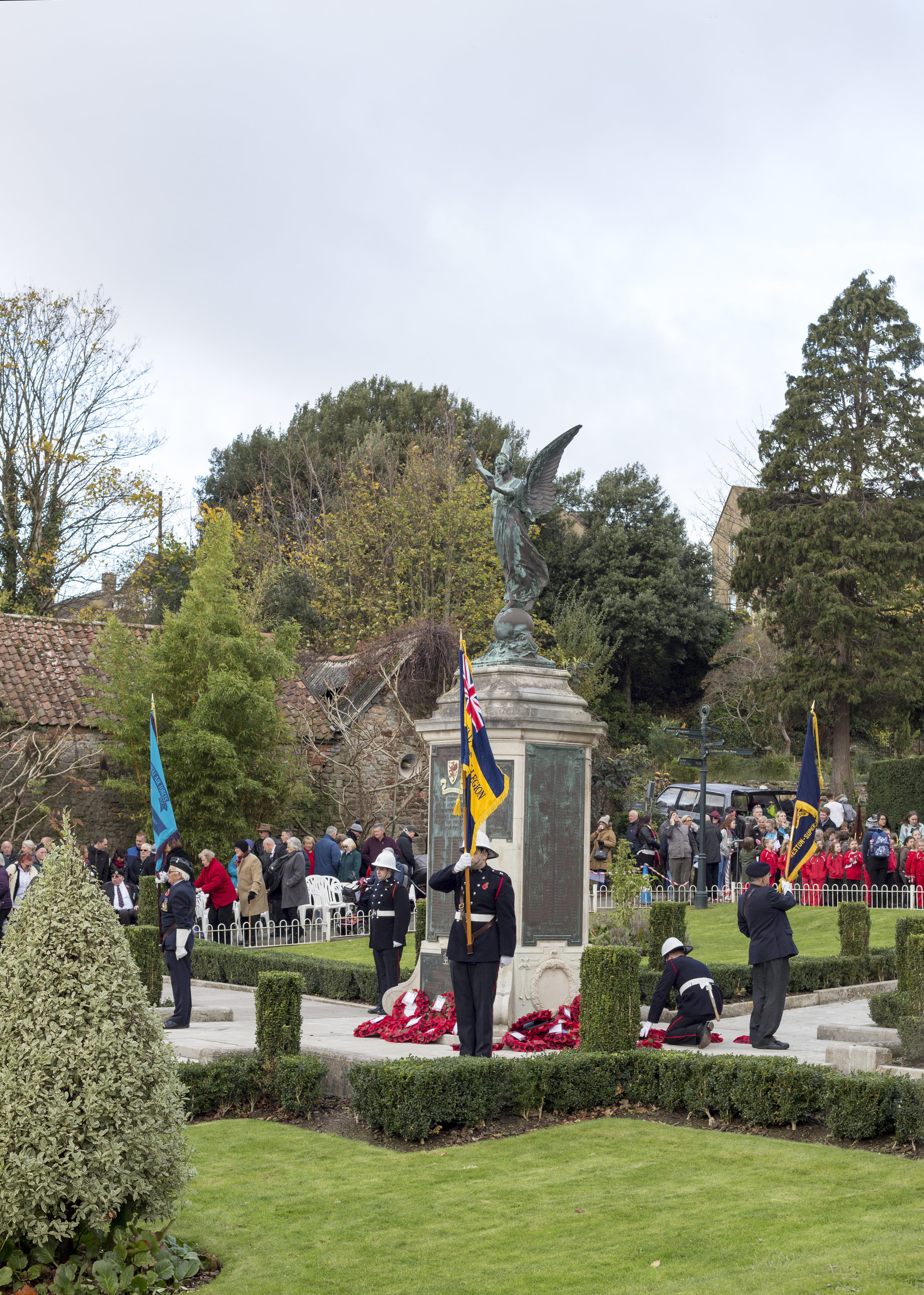"For your tomorrow, we gave our today"
Remembering those who served in the war is something that means a lot to me. My interest began when I studied World War One Literature as part of my A-level. I was introduced to the topic and devoured books, diary entries, poems, letters - anything I could get my hands on.
After falling in love with the genre, we then took a class trip to Belgium and experienced the trenches, the mud, the fields, for ourselves. I have stood in cemeteries surrounded by graves in all directions. In Belgium they buried the dead where they fell. As we drove through the country we passed fields in varying colours - the greens, yellows, and browns of crops. Dotted throughout were fields that appeared white, full of white stones marking where soldiers had fallen.
I have stood in the shadows of giant walls. Carved on the sides are names of people who were missing, whose bodies were never found, were already buried following an explosion or there was nothing left to bury. Their names are numbered with the dead, never to be forgotten.
I have walked down rows of graves reading the names, only to be met with countless gravestones marked simply as 'a soldier of the great war,' or 'a lieutenant of the great war,' because that was all they could identify from their remains.
My Grandfather was a medic in World War Two. When he spoke about his service, he only talked about his experiences in the Bahamas. Close friends believed his war experience was a "holiday." It was only after he died that they discovered he spent time in Europe releasing prisoners of war. His brother-in-law was a prisoner-of-war elsewhere and, on release, weighed six stone. His experiences as a POW meant that he was never able to father a child.
The effects of war are devastating and long-lasting. So how do you explain this to a child who is nearly four?
My nephew came with me to the Cenotaph today to see the laying of the poppy wreaths and had so many questions.
"Why are we here?"
"Why do we have poppies?"
"Why are they marching?"
"Where are the soldiers that aren't here?"
It is difficult to explain to a young child something you never want them to experience first hand.
Yet we are the lucky ones. There are children in the world who don't struggle to understand war because they see the effects in their everyday life. They have escaped as refugees, they're scared of the bombings and gunshots, they're recruited as young soldiers.
It is because we are the lucky ones that Remembrance Day should be such an important day.
I hope we can learn from our history, from the sacrifice of thousands who have gone before and those fighting for our rights today. Those who have experienced more than I can imagine.
Having talked about my love of World War Literature, here is my favourite WW1 poem:
The Parable of the Old Man and the Young
So Abram rose, and clave the wood, and went,
And took the fire with him, and a knife.
And as they sojourned both of them together,
Isaac the first-born spake and said, My Father,
Behold the preparations, fire and iron,
But where the lamb for this burnt-offering?
Then Abram bound the youth with belts and straps,
and builded parapets and trenches there,
And stretchèd forth the knife to slay his son.
When lo! an angel called him out of heaven,
Saying, Lay not thy hand upon the lad,
Neither do anything to him. Behold,
A ram, caught in a thicket by its horns;
Offer the Ram of Pride instead of him.
But the old man would not so, but slew his son,
And half the seed of Europe, one by one.
- Wilfred Owen
